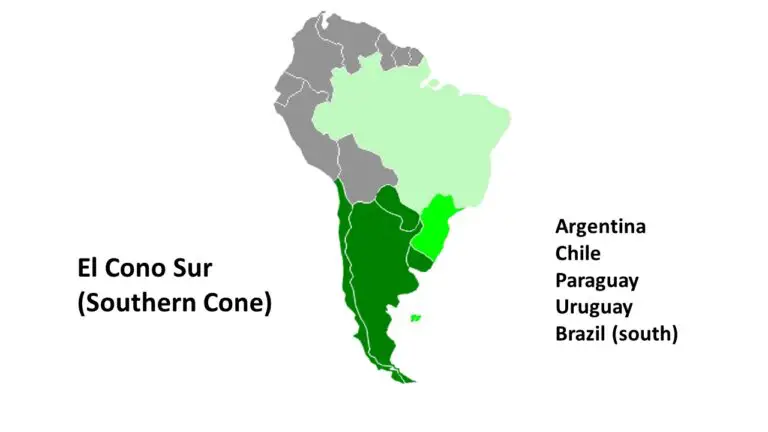Given its location and attractiveness to potential TEFL teachers, you’d think Malaysia would be one of the biggest English teaching hotspots in the world. But it’s not. There are a few reasons why, notably the visa situation. Money, however, isn’t normally an issue. So how much can you get paid there?
In general, TEFL teachers in Malaysia earn 3,000-9,000 Malaysian ringgits ($600-2,000) per month. Common employers are language academies and international schools. Private classes usually earn 50-100 Ringgits ($11-23) per hour.

If you have dreams of heading to Malaysia to start a TEFL career, I can tell you the salaries are enough to live on and save a little. However, if you’re under 27 or over 50, you’re out of luck. For some reason, the country only issues work permits to foreign nationals of a certain age.
Still interested? Keep reading to find out more details. If not, there might be another country that’s perfect for you. Compare countries around the world with my free resource: How Much Do TEFL & TESL Teachers Make? Countries compared.
Options and earnings for TEFL teachers in Malaysia
For most TEFL teachers, language academies and international schools offer the best chances of employment and decent salaries. Public schools and colleges may also employ you, but rates are much lower, so they’re hardly worth considering.
And, if you want to earn a bit more on the side, private tutoring is a good option, too.
| Earnings Source | Per Hour ($) | Hours Per Week | Per Month ($) | Annual Estimate ($) |
|---|---|---|---|---|
| International schools | 6-16 | 30-40 | 900-2,300 | 11K-28K |
| Language academies | 6-20 | 20-30 | 600-2,000 | 7K-24K |
| Private tutoring | 11-23 | 20 | 900-1,800 | 11K-22K |
The salaries in Malaysia aren’t going to make you rich. But they’re actually better than they look when you consider two things:
First, cost of living. For a single person in Malaysia, expenses (not including rent) average at about 2,000 ringgits ($450) per month. That’s pretty reasonable. Ah, you say, but what about rent?
Well, that’s the second thing to think about. Most TEFL jobs in Malaysia will pay for, or at least subsidise, accommodation costs, meaning you won’t have to pay much, if anything.
So if you’re mindful of your expenses, you can earn enough to actually save a few hundred bucks a month. No, you won’t pay off a massive student debt, but it’s something.
The school year in Malaysia starts in January and ends in November. There are a few breaks along the way, the biggest one being the mid-year break in May time. Consider getting applications in around late summer for jobs that start the following year.
And be prepared to get up early. Schools start at 7:30 am and end at about 1:00 pm, although closing times vary. If you’re working in a language academy, chances are you’ll have classes in the afternoon when kids have finished school and adults are done with work.
How much do TEFL teachers make in language academies in Malaysia?
There are plenty of language academies spread around Malaysia, although not quite as many compared to other countries in the region, like Thailand and Singapore.
Typical earnings range from 3,000 ringgits ($600) to 9,000 ringgits ($2,000), with the lower reaches for those with very weak qualifications, and probably a lighter schedule. The top pay bracket will require a good CV with plenty of experience.
Regardless of experience, you’ll need a TEFL certificate of at least 120-hours.
If you’re looking for great value TEFL certificates, I recommend International TEFL and TESOL Training. Click the link for 15% off all courses (I receive compensation, so you’re supporting me, too). Not convinced? Read why I’d choose ITTT over other TEFL course providers.
The vast majority of language academies in Malaysia are based in the capital, Kuala Lumpur. Check out this list at ESL Base to see some of the options.
How much do TEFL teachers make in international schools in Malaysia?
Probably the most lucrative source of income for TEFL teachers in Malaysia, international schools typically pay anywhere between 4,000 and 10,000 ringgits ($900-2,300) per month. But if you get into a really top level international school, you could earn as much as 16,000 ringgits ($3,600) a month.
The good thing about these jobs is that you have good security and long-term contracts.

On the other hand, they’re usually harder to get than language academy positions. Of course, a teaching license and degree-level certificate (like the PGCE and QTS in the UK) will be enough, but the requirements aren’t always that stringent.
A CELTA or even Level 5 TEFL might get you a job if supported by a few years of experience.
How much do TEFL teachers make from private classes in Malaysia?
TEFL teachers around the world can make good money from private tutoring. In Malaysia, it’s no different.
Typical hourly rates for private classes are 50-100 ringgits ($11-23). This is a better per hour rate than language academies or international schools.
However, like almost everywhere else, it’s near enough impossible to go full time as a freelancing tutor. To get a work visa, you need to be employed by a company in the nation.
It’s not all bad, though, because you can do private classes on the side. Just three hour-long classes a week would net you an extra $132 a month, and that’s money which can go a long way!
For more on how to get started as a private EFL/ESL teacher, read my article on the topic: How to Get Started as an EFL/ESL Private Tutor: Full guide.
Conclusion
If you fit the 27-50 age bracket, Malaysia can be a great place to work as a TEFL teacher. The salaries are decent, and the living costs are low. It’s also a pretty nice place to live with its own unique culture.
But compared to other nearby countries, where pay is higher, or jobs are easier to find, Malaysia doesn’t look quite so good. And that’s why it isn’t a TEFL hotspot. Not to mention the fact that everyone under 27 or over 50 can’t legally work there, which still baffles me.
For those who are set on Malaysia as their ideal destination, it’s a perfectly good place to work. For everyone else, there are better places.
Why not head over to my resource: How Much Do TEFL & TESL Teachers Make? Countries compared to see what countries around the world can offer?










